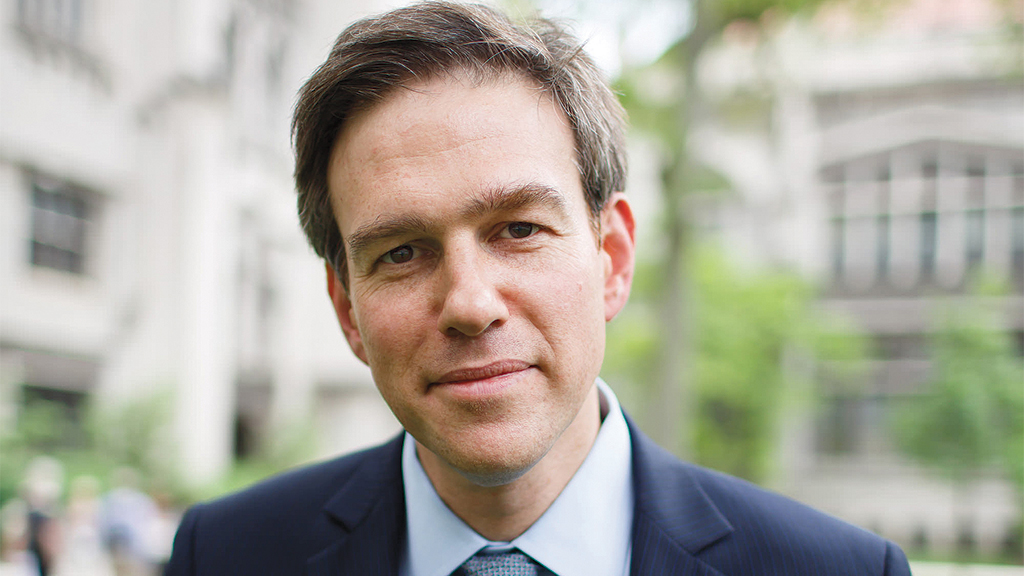A common complaint of liberal journalists about conservative politicians is that the latter lack courage. As in: Paul Ryan knows that Donald Trump is a bigot and a danger, but the House speaker lacks the courage to stand up to the president.
Even conservatives who do the right thing can be criticized for insufficient courage. After Jeff Flake denounced Trump from the floor of the Senate and announced his retirement, The New Yorker's Amy Davidson Sorkin faulted him for having "raised a call to arms - and then sounded the retreat."
I thought of that line on Monday while reading an excruciating statement from another New Yorker, editor David Remnick, explaining why he quickly rescinded an invitation to former presidential adviser Steve Bannon to be interviewed on a public stage.
"Today, The New Yorker announced that, as part of our annual festival, I would conduct an interview with Bannon," Remnick wrote, in a manner reminiscent of a hostage letter. "The reaction on social media was critical and a lot of the dismay and anger was directed at me and my decision to engage him. Some members of the staff, too, reached out to say that they objected to the invitation, particularly the forum of the festival."
What followed was a lengthy, and wholly persuasive, explanation of why Bannon was in fact worth inviting in the first place.
If high-profile interviews with a racist like George Wallace or a theocrat like Ayatollah Ruhollah Khomeini were worth doing by a past generation of journalists, Remnick reasoned, why not one with Bannon?
Nor would the interview be an easy one for Bannon, Remnick insisted. This was not going to be a matter of rewarding Bannon with praise in front of a friendly audience but of subjecting him to potentially brutal scrutiny.
"I have every intention of asking him difficult questions and engaging in a serious and even combative conversation," Remnick told The Times in an interview conducted before he withdrew the invitation.
But none of that mattered because - well, Twitter.
Following news of the invitation, other high-profile festival invitees, including producer Judd Apatow and actor Jim Carrey, tweeted that they would pull out if Bannon remained on the program. That helped start an online wave that crested with Remnick's abrupt sounding of the retreat, based, he said, on not wanting "well-meaning readers and staff members to think that I've ignored their concerns."
That's nice, and possibly sincere. But what this really means is that Remnick is no longer the editor of The New Yorker. Twitter is. Social media doesn't just get a voice. Now it wields a veto.
Remnick acknowledged members of his own staff also revolted at the invitation. One of his writers, Kathryn Schulz, took to Twitter to say she was "beyond appalled" and invited readers to write Remnick to add their voices to the pressure.
That's an astonishing statement coming from any journalist who believes that the vocation should largely be about putting tough questions to influential people.
Not long ago, a public challenge such as Schulz's would have been a firing offense. But the gradual degradation of editorial authority is another depressing feature of our digital age, as supposedly neutral reporters use social media to opine freely, ferociously and very publicly about whatever they please.
In the meantime, it's worth considering what Remnick's disinvitation has actually achieved. Here's my list:
It has kept Bannon's name prominently in the news, no doubt to his considerable delight. It has lent credence to the belief that journalists are, as Bannon said of Remnick, "gutless." It has corroborated the view that the news media is a collection of left-wing groupthinkers who, if they aren't quite peddling "fake news," are mainly interested in advancing only their own truths. It has kept readers of The New Yorker locked in their usual echo chamber. It has strengthened the belief that vulnerable institutions can be hounded into submitting to the irascible (and unappeasable) demands of social media mobs. Above all, it has foreclosed an opportunity to submit Bannon to the kind of probing examination that Remnick had initially promised, and that is journalism at its best.
The next time we journalists demand "courage" of the politicians, let's first take care to prove that we know what the word means, and to exhibit some courage ourselves.
The New York Times
